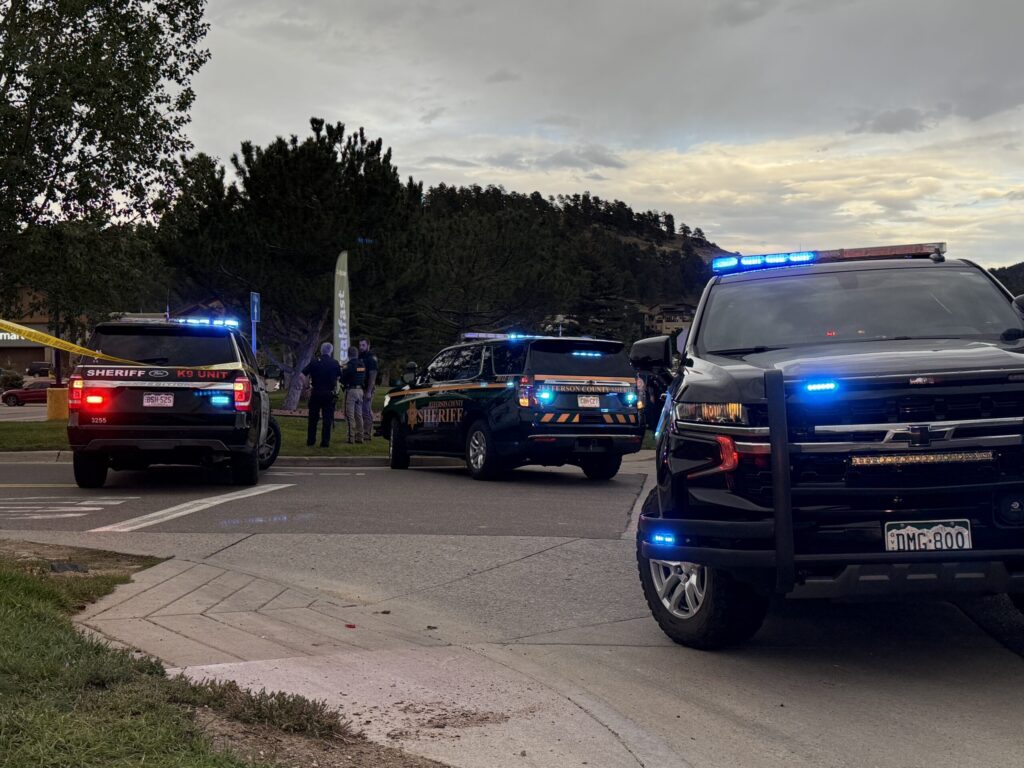Judge acted properly when convicting ‘Good Grammar Bandit,’ Supreme Court rules

The Colorado Supreme Court has rejected the argument that an Adams County judge compromised his neutrality and pressured the prosecution into changing its position on a key piece of evidence.
The justices decided on Monday that District Court Judge Robert W. Kiesnowski, Jr. acted appropriately during the 2017 trial of Levi Derek Hall, nicknamed the “Good Grammar Bandit.” Kiesnowski found Hall guilty of eight counts of robbery during a bench trial, meaning the judge rendered the verdict instead of a jury. The main issue in Hall’s appeal was what happened after Kiesnowski believed he had spotted something on video footage that would prove Hall’s guilt.
Circumstantial evidence placed Hall near the scenes of multiple bank robberies, and his ex-boyfriend identified Hall as the robber. The perpetrator would use notes demanding money and fled on foot. He concealed his identity by wearing a hat or hooded sweatshirt covering his ears, plus large sunglasses during the robberies.
When police arrested Hall, he was wearing a large studded earring in one ear. But neither bank employees nor surveillance footage indicated a visible earring on the robber. During Hall’s trial, the prosecutor acknowledged that “we don’t see earrings during the robbery,” and added that the earring was irrelevant.
After closing arguments, Kiesnowski announced, “We are not done, folks.” The judge reviewed one of the surveillance videos frame-by-frame, at one point announcing that he spied a flash in the robber’s ear.
“That’s what I wanted to see,” Kiesnowski said. Turning to the prosecutor who had previously asserted that no earrings were visible, he asked, “Those flashes in his ears, what do you think they are?”
“I would argue that they are an earring,” the prosecutor replied.
Kiesnowski then found Hall guilty and sentenced him to 24 years in prison.
Hall appealed, arguing that Kiesnowski turned himself into an advocate for the government and made the prosecutor a witness, violating Hall’s right to a fair trial. By a 2-1 decision, a panel of the Court of Appeals agreed with Hall and ordered a new trial.
The attorney general’s office took the case to the Supreme Court, arguing that the judge had a duty to find out the truth about the earrings. By contrast, Hall contended that Kiesnowski was improperly acting as a surrogate prosecutor and pressured the lawyer to change his position on the earring.
“Even if the prosecutor had stood his ground and said, ‘I don’t see earrings,’ I still think it’s problematic because it does look like the court is saying, ‘You need to be making this argument about earrings and you’re not. This is how you try a case’,” said public defender Chelsea E. Mowrer.
The Supreme Court disagreed with Hall and the Court of Appeals’ majority and reinstated the convictions. Justice Maria E. Berkenkotter, herself a former trial court judge, explained that trial courts are allowed to reopen cases and admit additional evidence if justice requires it. Similarly, a judge who asks the parties for additional commentary on evidence is not automatically transforming himself into an advocate for the prosecution.
“[W]hile we are cognizant of the fact that certain lines of questioning or comment may demonstrate that a court has stepped out of its role as a neutral arbiter and into the shoes of an advocate, we are not persuaded that is what occurred here,” she wrote in the Court’s Oct. 18 opinion.
During oral arguments in June, some of the justices wondered why it was wrong for Kiesnowski to seek clarification when he thought he saw something on the video that the parties had not seen. Berkenkotter, in the Court’s decision, reiterated that Kiesnowski had no obligation to agree with the prosecution and the defense about what the surveillance video showed. Consequently, the Supreme Court determined the prosecutor’s reaction to the judge’s questioning was reasonable.
The case is People v. Hall.













